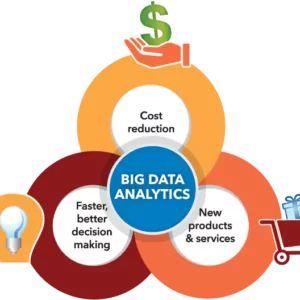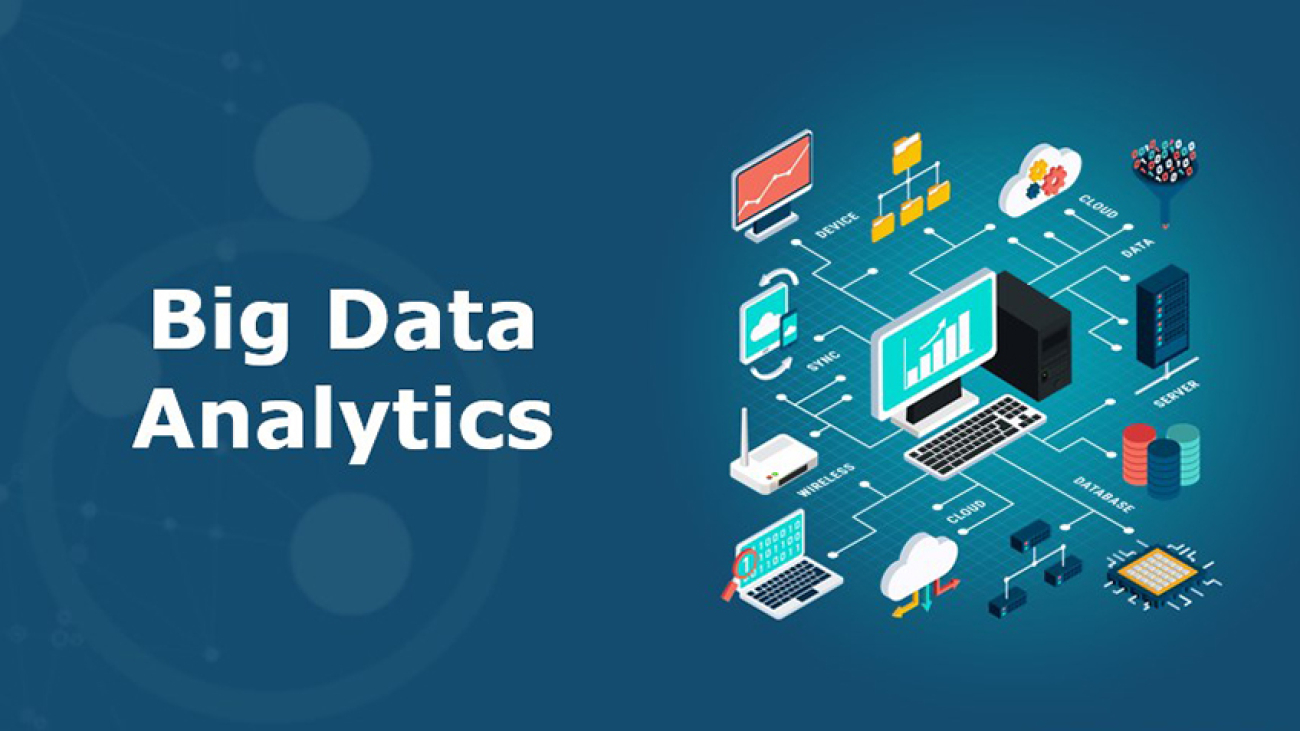Discover the power of big data analytics for business decision making. Unleash valuable insights and gain a competitive edge with data-driven strategies today!
Demystifying Big Data: Leveraging Analytics for Smarter Business Decision-making
In today’s digitally-driven world, data is the lifeblood of businesses. With the advent of technology, vast amounts of data are generated every second, creating what we call “Big Data.” The abundance of data can be overwhelming, but when harnessed correctly through big data analytics for business decision-making, it becomes a powerful tool to drive growth and success. In this article, we will explore the impacts of big data on business, the significance of big data analytics, and how organisations can strategically leverage this valuable resource to make smarter decisions.
The Impacts of Big Data on Business
The proliferation of smartphones, the internet, and other digital devices has led to an exponential increase in data production. This data includes customer interactions, social media posts, website visits, purchase history, and much more. As businesses tap into this massive pool of information, they gain unprecedented insights into their customers, markets, and operations. This newfound understanding allows them to optimise their strategies and improve overall efficiency.
One of the significant impacts of big data on business is enhanced customer understanding. By analysing customer behaviour and preferences, companies can personalise their products and services, tailoring them to individual needs. This personalised approach fosters customer loyalty and boosts retention rates. Massive conglomerates like Amazon, Target and almost every single customer-centric organisation is using big data to predict customer purchase patterns and so much more.
Moreover, big data analytics enables businesses to identify emerging trends and predict future demands. With this foresight, companies can stay ahead of the competition and proactively adapt their offerings to changing market dynamics. This agility in decision-making gives businesses a competitive edge, helping them outmanoeuvre rivals.
Big Data Analytics Strategy: A Step Towards Success
Crafting an effective big data analytics strategy is crucial for businesses looking to leverage data for better decision-making. A well-thought-out plan ensures that the data gathered is not just a massive collection of information but rather a valuable resource driving actionable insights.
- Define Objectives: The first step in any big data analytics strategy is to identify the specific objectives the company aims to achieve. Whether it’s optimising supply chain management, improving customer experience, or enhancing product development, defining clear goals is vital.
- Gather and Cleanse Data: To avoid making erroneous conclusions, data integrity is paramount. Organisations must ensure that the data collected is accurate, complete, and up-to-date. Cleaning and organising the data is an essential task to enhance its usability.
- Choose the Right Tools: There are various big data analytics tools available, and selecting the most suitable ones for your business is vital. These tools should align with your goals and allow for efficient data processing and analysis.
- Interpret and Apply Insights: Collecting data and generating insights is only valuable when organisations can translate those insights into meaningful actions. Teams must work collaboratively to apply the conclusions to decision-making processes.
How Data Analytics Supports Business Decision-making
Data analytics plays a pivotal role in transforming raw data into meaningful information. It involves the use of statistical algorithms, machine learning, and artificial intelligence to analyze data patterns, trends, and correlations. Let’s explore how data analytics supports business decision-making.

-
Identifying Opportunities and Challenges
Data analytics provides a panoramic view of business operations, highlighting areas of strength and areas that require improvement. By recognising opportunities and challenges, companies can prioritise their efforts and allocate resources effectively.
-
Making Informed Decisions
Gone are the days of relying solely on intuition or gut feeling for decision-making. Data-driven decisions are more reliable and less prone to bias, empowering leaders to make informed choices based on evidence and trends.
-
Predictive Analytics
Predictive analytics takes data analysis to the next level by forecasting future outcomes based on historical data. This allows businesses to anticipate demand, identify potential risks, and plan accordingly.
-
Enhanced Customer Experience
Understanding customer behaviour through data analytics enables businesses to personalise their interactions. Tailored recommendations and targeted marketing campaigns create a superior customer experience, fostering loyalty and advocacy.
Utilising Big Data in Business: Real-life Applications
The integration of big data analytics into business processes has already transformed various industries. Let’s explore some real-life applications of big data in different sectors:
- Retail and E-commerce: Online retail giants like Amazon utilise big data analytics to recommend products to customers based on their past purchases and browsing history. This personalisation significantly enhances the customer experience, leading to higher sales and customer retention.
- Healthcare: Big data analytics has revolutionised healthcare by enabling predictive modelling for patient diagnosis and treatment planning. Healthcare providers can now identify potential health risks, manage chronic diseases better, and optimise resource allocation.
- Finance: In the financial sector, big data analytics helps detect fraudulent transactions in real time, minimising financial losses. Additionally, it aids in assessing credit risk and predicting market trends, supporting investment decisions.
- Manufacturing: Industries can optimise their production processes through big data analytics, ensuring minimal waste and maximum efficiency. Predictive maintenance of machinery based on data analysis reduces downtime and saves costs.
How Does Data Analytics Help Business? Key Benefits
The incorporation of data analytics into business practices brings forth a multitude of benefits. Let’s explore some of the key advantages:
-
Improved Efficiency:
Data analytics identifies inefficiencies in business processes, allowing companies to streamline operations and allocate resources effectively.
-
Cost Savings:
Identifying cost-saving opportunities is one of the most significant benefits of data analytics. By analysing spending patterns and supply chain data, businesses can make strategic cost-cutting decisions.
-
Enhanced Product Development:
Data analytics helps businesses understand customer preferences and demands, leading to the development of products that align with market needs.
-
Competitive Advantage:
Organisations that leverage big data analytics gain a competitive edge, staying ahead of competitors by making data-driven, timely decisions.
Conclusion
Big data analytics for business decision-making is no longer a luxury; it’s a necessity for success in today’s data-driven landscape. The impacts of big data on business are profound, empowering companies to gain insights into their customers, markets, and operations. Crafting a robust big data analytics strategy is vital to effectively utilise this valuable resource.
Data analytics supports businesses in various ways, from identifying opportunities and challenges to making informed decisions and enhancing customer experiences. By implementing big data analytics in real-life applications, companies across industries have reaped the rewards of improved efficiency, cost savings, and a competitive advantage.
In summary, the strategic use of big data analytics unlocks the potential for smarter, data-driven business decision-making, paving the way for sustained growth and prosperity in the digital age!


Add a Comment